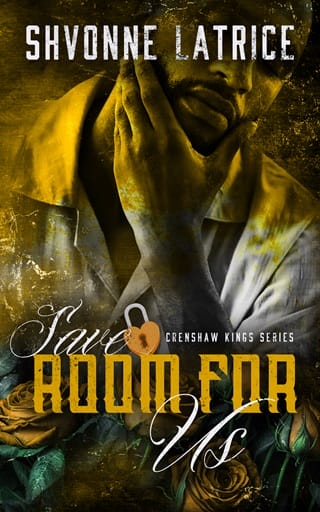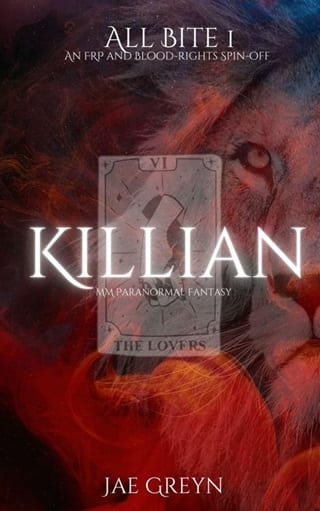Chapter 11
11
ON THE RARE OCCASION THAT MILLICENT BUNTING ALLOWED HERSELF TO CONTEMPLATE death, she imagined it as a cavalry of horses thundering down a long dirt road with her at the end of it, pinned in place, unable to move. They were snorting gray horses with hooves big as church bells. Their manes whipped in the air. Millicent tried to close her mind to the possibility of those horses, but even when she was not gazing down that long dirt road, she could hear the echo of their thunder rumbling all the way down to where she was, and it was then that she worried that death was nearer than she wanted it to be.
If Ada were there, she would have told Millicent that horses were horses, that they were not death, and that Millicent was going to be just fine. The two of them might have laughed about the horses, the way they laughed when someone broke wind in the middle of a church service or when Ada imitated their mother’s scolding tone of voice, usually after she had been scolded herself and their mother was safely out of earshot again. Or the way they did the time that a bird relieved itself on Cordelia Bennington’s left shoulder and she screamed so loud that a whole flock of bullfinches flew up out of the tree, flapping as they scattered away. Millicent did not think it right to laugh at anyone to their face, but when it came to Cordelia, who acted so high she might as well live in the tops of the trees with those birds, Millicent could not help herself. It was a little bit funny seeing Cordelia brought down to earth. Laughing now would have made Millicent feel better for a time. Or if not better, it would have distracted her at least, and helped her forget how terrible she felt, sick with hardly any improvement for the whole last month.
After Ada left, the first thing Millicent had done was get up out of her bed and climb into Ada’s instead. It was a means of feeling closer to Ada when she was so far away. Millicent had dragged over her quilt, pieced and sewn by their mother, who could do anything with a needle and thread, and burrowed herself underneath it. It amazed her, in that small room where their three beds were arranged like a U around three of the walls, how different the view was from here. Millicent’s bed was along the back wall of the house, with a window that she only saw out of the corner of her eye. Ada’s bed, with its foot toward Millicent’s head, faced that same window, and when Millicent lay there, she could see straight out to the blue of the sky. Maybe that explained the difference between them, Millicent thought. With that view of the wide-open sky, who wouldn’t think that the world was beckoning?
The horses were louder at night when the sky through the window was dark but for stars. Both her body and her mind were weary then; both came closer to surrender. Those were the worst times. While her mother slept, Millicent lay in the dark, trying to comprehend what it would be like if the cavalry came. What happened to a person as they were taken from one world to the next? Did you feel it? What was that moment of leaving like? What was every moment after that like? And then Millicent cried because she was scared.
During the day, it was different. When her mother fed her dumpling soup and the fever waned and the sky was blue, Millicent felt sporadic surges of strength and she thought that if she could just hold on a little while longer, she might make it yet. The doctor had said a surgery would help, and though the thought of that was nearly as terrifying as everything else, she would do it if that’s what it took. She was not ready to die. What had she even done with her life? For seventeen years she had gone to school and finished her chores and eaten her meals and cleaned up after herself. Every responsible thing. She had liked a boy once who liked her back, a dalliance that Millicent had told no one, not even Ada, about. He was a polite boy named Howard, and he had a lisp when he spoke that Millicent found charming, especially because he was self-conscious about it. She had met Howard a few times in a cove by the sea, and Howard and she had sat there in secret and chatted and shyly he had held her hand and once he kissed her full on the mouth and then all up and down her neck in a way that tickled. Then one day Millicent waited for an hour with her arms round her knees, watching the merrywings over the sand, but Howard did not show up, and the next time Millicent saw him he was with someone new. It was something and then in a flash it wasn’t, and she was such a coward that she never said anything to him about it. She just let him go. If she were more like Ada, she might have made a fuss. She might have confronted Howard and made certain everyone knew that he was not as polite as he wanted to seem. But she was only herself, and try as she might, she could not manage to be any other way. There were times she longed to be different, but she guessed everyone felt that way at one time or another, and so in wanting to be different, everyone was the same. Anyway, Howard with his dotish lisp was hardly worth thinking about. He was a shiver in the wind. If anything, he reminded Millicent what her mother had told Ada and her a dozen times or more: A woman should have no need for a man. Millicent could sit by the sea and hold her own hand, she supposed. It was why she had two.
***
LUCILLE WALKED INTO the room with a cup of bush tea and urged Millicent to drink. Millicent had sipped a number of bush teas in the last three weeks, but none of them seemed to have any lasting effect.
“Come, fresh lime leaf in this one here,” her mother said, helping Millicent sit up in bed.
Lucille held the cup to her daughter’s lips. Once or twice she had lifted the lid on the tin where the black cake was fermenting, hopeful that if she let a bit of the rum-sweet scent escape, the aroma alone would rouse Millicent from bed. But it hadn’t. Not yet. The scent would get stronger with time—the cake would be ready by Christmas—but Lucille did not know how much time they had. She tried not to think about that. That the doctor required £15 for the surgery was every day on her mind. She had gone to the church to ask if there was anything they could do (the reverend had told her they could pray), and she had been sewing till her fingers ached, trying to sell what she made, approaching past clients to see if she could interest them in buying something new, and Mrs. Callender had let her pluck cherries from her lovely trees and take the cherries to market to sell. But £15 all at once was a sum Lucille had never had in her life, and no matter how she tried to get it, so far her efforts had yielded only £2 plus prayers.
“How you feel now?” Lucille asked after Millicent drank the tea.
“The same.”
She put a hand to Millicent’s forehead. “No fever at least.”
Millicent sank back down under the cover of the quilt and said, “Read the letter again.”
“I read it ten times already.”
“I want to hear it again.”
Lucille slid her hand into the patch pocket of her dress and pulled out the small postcard, which she had folded in half. The paper was thick, and the crease down the middle resembled a braid. The letter had been brought by a mail messenger who came up the road shouting, “Bunting! Bunting!” since there were no house numbers to tell him just where to go. The letter had been addressed to only a street and a name. The first time Lucille read it, she had to do so slowly to decipher the words, but she had the whole thing memorized now. From the side of the bed, Lucille recited it.
After six days on the big ship, I made it to Panama. I am well. I found work already. It is true—work comes down upon you easy as rain. (And there is plenty of rain!) I will send money next time—just as soon as I can. I miss you both terribly.
Ada
Lucille refolded the postcard and tucked it back down in her pocket again. I am well. She clung to those words. Each time Milli cent begged her to read the letter and she opened it up, she was afraid that sentence would be gone, that she would find she had misremembered it or that somehow it would have disappeared. She was relieved to see it was there again now.
Millicent had memorized the letter, too. She liked to hear her mother read it aloud, but even in between those times, Millicent recited it in her head, trying to picture Ada on the big ship, as she called it, and then in faraway Panama with its plenty of rain. The interesting thing was that Millicent could picture it easily, even though all she knew of Panama was the stories she had heard from the men who had come back after working there already, stories about crocodiles in the swamps, and a ditch they were digging that was deeper than the ocean, and a lake they were making that one day would be as big as Barbados itself. Thirty-two different men from their church alone had gone, and the ones who had returned were welcomed like heroes. After service they stood outside and told tales of what it had been like while people gathered round, eager to hear. Some of them, like Enos Mann, were humble about their adventures, Enos saying only that he had worked hard, day and night he had worked, and that he was grateful just to be a small part of something so big. Others, like Edward Wainwright, were showy, pompasetting about, coming to church in a new three-piece suit and pulling a shiny gold pocket watch out of his vest pocket every few minutes so everyone could see just how gold and shiny it was. He was always flipping the timepiece open, making sure it caught the light of the sun, and announcing the time even though no one had asked. “I see it quarter past nine!” “It now upright six!” A few kind people would sometimes respond, “That it is, Mr. Wainwright,” or, “We thank you for the report,” while others, like her mother, just rolled their eyes. The pocket watch was accompanied by a new collection of hats, one for every Sunday of the month, each with a feather that annoyed her mother so much that she called him Edward Peacock when he could not hear. Half the men in Barbados, it sometimes seemed, had gone to Panama already or else wanted to go. Millicent had heard of only a few women who were doing the same, and even then she’d heard of none as young as her sister going off on their own. She was incredulous not only that Ada had done it but that she had done it for her.
After listening to her mother read the letter again, Millicent looked out the window across the room. Ada was somewhere out there, probably not even scared.
“What sort of job you think she got?” Millicent asked.
“Knowing your sister, could be anything.”
“Not a washerwoman, though.”
Her mother chuckled. “No.”
“You think she truly misses us?” Millicent asked.
“Of course.”
Millicent coughed. “Seems I feel even worse with her gone away.”
Maybe it was because of the horses, because she sensed they were near. Maybe it was because Ada was courageous and she wanted to be that way, too. All at once Millicent said out loud something she had wondered for a long time. “Do you think he misses us?”
“Who?”
The ache in Millicent’s chest was so deep at that moment that she could not tell whether it was from the illness or something else. She was, these days, always short of breath, but she took the deepest inhalation she could and said, “Our father.”
Lucille nearly dropped the empty teacup in her hand. Her shoulders and legs and hips all went loose, and the looseness traveled straight up to her mind. How to answer a question like that? When Millicent was a child, she had asked questions every now and again. What was his name? What was he like? Why did he never come back to see us? The questions were painful, and to answer them, Lucille always believed, would be to let that pain singe the girls, too. So Lucille had always answered each question with as much ambiguity as she could muster. Rest your mind. We don’t need him. We’re fine just us three. At that moment, though, with one daughter across the world and the other, she feared, not long for it, Lucille considered telling the truth. What if Millicent went to the Lord without knowing it? Would she have robbed her daughter of something that was her right to know? But what if delivering that truth is what the Lord was waiting on, the path fully cleared, and as soon as Millicent knew it, He would unhitch Millicent from this world and guide her into the next?
Lucille was not thinking clearly, everything so loose and muddied as it was. Gently, she put a hand to Millicent’s forehead again—still only warm—and then leaned down and kissed her there. “I imagine he must,” she found it within herself to say, and she left it at that.
Millicent thought she knew, though she never aired her suspicion out loud. She often wondered whether Ada harbored the same intuition, but anytime Millicent tried to shoulder up to the idea, to make some comment or other that grazed what she thought the truth might be, Ada never even flinched. Millicent watched. Confirmation could come through the briefest shared glance. Do you know? Yes. I’ve always known. It’s true then? Yes. But Ada never exhibited the smallest expression of recognition, and Millicent did not want to be the one to spoil her sister’s ignorance. She herself would have been better off not knowing, she sometimes thought. It was more upsetting to think that her father was so near and yet never came round than to think that he was absent altogether. And what sank Millicent’s heart even deeper was that he had cast them out. That is what she believed: Their father did not want them, so he had told them to leave.
The Camby Plantation was not quite three miles from the plot on Aster Lane where they had rebuilt their house. It was a story that her mother, if she was in the right mood, liked to tell. With pride, her mother recounted how she and a few other people had built the house here, how they had worked all night till it was done. The point of the story, as Millicent understood, was to show Millicent and Ada how capable their mother was, to impart the lesson that a determined woman could do such things, build a house from the ground up, and in so doing build her own life. Her mother always skipped over the part about leaving the estate, and if Millicent asked, her mother merely smiled and pointed out something about the house that she liked, as if to prove that what they had now was better than what they had left. And there was much to like. The house sat on the side of a long dirt road, raised up off the ground, and Millicent and Ada had grown up playing on the small front porch, where they could sit and look out at the giant tamarind tree and at the grass flecked with sunshine, at the Penningtons’ three-legged pot steaming with stew and the stack of cordwood Mrs. Callender kept on her porch.
Nearly a year before Millicent fell ill and Ada left for Panama, Millicent went to the estate one afternoon. She wanted to see the place where they had lived, the place where Ada and she had been born. She wanted to see the man who sired them, for she thought she knew.
She often went for walks by herself, taking her old school tablet with her and finding places to sit outside and draw. She sketched the birds and the trees, and the next time she went out, she erased what she had drawn the time before and drew something new. When she grabbed her tablet and walked away from the house that day, neither her mother nor Ada thought anything of it.
The sky had been radiant with yellow sunshine as Millicent had walked. Holding her writing slate to her chest, she had felt her heart thud at the thought of what she was going to do. What if he was there? What if she saw him? What if he saw her? Would he recognize her? Would he know who she was? She would watch his face, the way she watched Ada’s sometimes. Would he tell her by a change in his expression that she really was right, that they shared the same blood? It was that thought in particular that made Millicent’s chest tight. What if she was right? What then?
Her heart picked up its pace as she stepped through the tall grass. She usually did everything with purpose and deliberation, but she had no plan beyond walking to the plantation and standing on the grounds hoping to glimpse a man’s face, to see if it would give her the answer to all the questions she had.
When she came to the drive leading up to the grounds, she could scarcely breathe. The drive was lined on both sides by mahogany trees, and they nodded to her in the breeze. She thought that was encouragement maybe, and she kept on. As she rounded a bend, past a hedge of hibiscus, the house came into view. It was almost as she had imagined it would be. A two-story house, pale gray with white trim. It had gracious balconies that spanned the width up top and a porch down below. In the far distance she could see the still blades on the stone windmill. What she did not see was another living soul anywhere, and she guessed that somewhere beyond the house was the area where everyone else who worked on the plantation lived, the area where her own house had once been. She thought about walking there just to see, but she was nervous already about having come this far. Standing on this gravel lane was possibly the one courageous thing she had ever done in her life. Millicent turned around, looking back in the direction from which she had come, and allowed herself to feel a moment of pride. She was still looking down the lane curving away from her when, from behind, the gallop of horse hooves came barreling up. She looked back over her shoulder to see a driver, a Black boy, sitting up tall in the front seat of a carriage, holding two leather reins and snapping them against the flanks of the horse to which the carriage was strapped. Millicent caught her breath. Quickly, she stepped behind a large tree. She clutched her tablet tight to her chest. She heard the driver say, “Yeeeuh,” to the horse. Millicent peered out past the tree as the carriage neared—and inside it, under a dun-colored collapsible hood, was a man she took to be Henry Camby. He was clean-shaven, with a black hat on his head that cast a shadow over his long, elegant nose. He was alone in the carriage, gazing in the direction where Millicent stood hiding behind the trunk of a mahogany tree. She was seized by the need for him to see her. She stepped out to the side, clear of the tree, into plain view. She squeezed her tablet so hard that her finger joints popped. She watched his expression. He was maybe fifteen feet from her. Millicent watched and waited, but the look on Henry Camby’s face, weary and lonely, did not change, and Millicent felt the ache of disappointment in her breast, wondering whether he had seen her at all.
 Fullepub
Fullepub 



